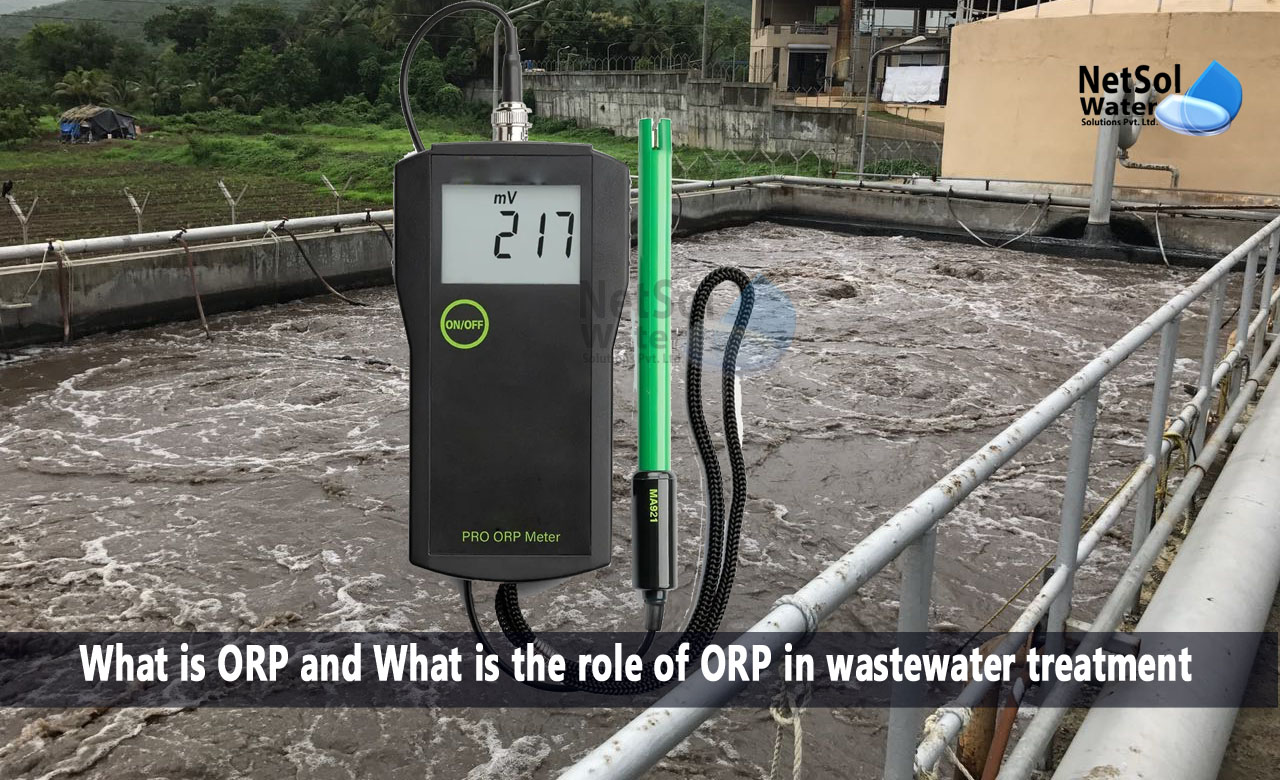What is ORP and What is the role of ORP in wastewater treatment?
All life forms are affected by water contamination, which is a major issue right now. Also, groundwater is a pathway for pollutants from both natural and human-caused sources into drinking water.
In this blog, we will learn about the concept of ORP and its role in wastewater treatment.
What is ORP?
Oxidation reduction potential (ORP) is an important technique for evaluating the quality of water.
What is the role of ORP in wastewater treatment?
Using an ORP meter, compounds are categorized as either oxidizing or reducing agents, and ORP is measured in millivolts (mV).
An oxidizing agent is present when the ORP value is high. A reducing agent is indicated by a low value. With low ORP values and high readings, water pollution levels typically rise.
Water's ORP is regarded by scientists as a key sign of contamination levels. For instance, an oxidizing agent with an ORP range between +200 and +600 mV is safe drinking water. On the other hand, chlorinated pool water should have an ORP between +650 and +750 mV.
ORP in Groundwater
Groundwater quality is impacted by surface water penetration. Surface water is frequently the first place that waste and other pollutants enter, before soaking into the earth. Metals like arsenic and iron are liberated from minerals in aquifers, and contaminate groundwater in a reductive environment.
So, in this case, low ORP measurements are a reliable sign of water contamination. A particular ORP level is needed to preserve water quality depending on the contaminant.
Characterization of ORP and Groundwater Quality
Groundwater quality is influenced by ORP, especially when looking for metallic pollutants. For groundwater with high concentrations of iron, arsenic, and other metals, it is a helpful tool.
Some metals might find their way into the groundwater system naturally through rocks and silt. Additional metals come from human-caused sources such as feedlots, landfills, and the by-products of industrial waste.
Groundwater's "redox potential" refers to its ability to undergo oxidation or reduction. Readings of groundwater ORP typically fall between -400 mV and 800 mV. Groundwater with high concentrations of oxidizing (chlorine) and reducing (sulphite ions) chemicals, can be evaluated using ORP levels.
It's crucial to take into account additional elements, such as how biological matter degrades in the groundwater system.
Significance of ORP Tests for contaminated water: Role of ORP in wastewater treatment
Many biological and human-induced factors can contaminate water. Both on its own and in combination with other techniques, ORP is a useful indication.
Since, factors other than ORP might have an impact on water quality, it is crucial to comprehend the total environment of the water being analysed. Pollution levels, for instance, may be impacted by the position of surrounding reservoirs, farms, or geological formations.
On the other hand, it is frequently necessary to assess variables like DO and pH in light of ORP values. Other testing techniques, when used with ORP, aid in assessing the efficacy of wastewater treatment facilities. Engineers can decide whether to delay aeration during wastewater treatment, using a combination of ORP and DO levels.
Conclusion
When treating wastewater, taking ORP readings is a helpful technique for figuring out, whether the conditions are ideal for removing nitrogen and phosphorus.
Anoxic conditions may be indicated by a DO measurement, yet the ORP level may still be excessive. It could be required to postpone aeration to give the water's ORP levels time to fall.
The bacteria can work when ORP levels are low enough for them to function. Environmental conditions can be measured more precisely by combining DO and ORP meter values, than by using just DO readings.
How can we assist?
Netsol Water is one of India's largest water and wastewater management companies in India. We are focused on the design, production, and delivery of specialized water treatment plants, wastewater treatment plants, sewage treatment plants, effluents treatment plants, and RO Plants.
Testing ORP supports the evaluation and improvement of wastewater treatment systems by scientists and engineers. Contact us at +91 9650608473 or enquiry@netsolwater.com for expert advice.



